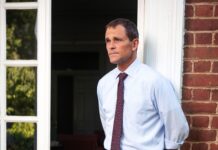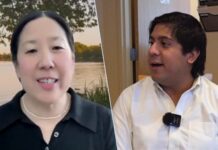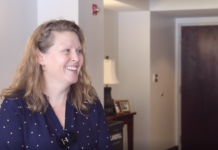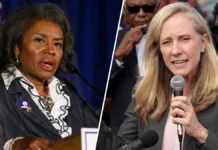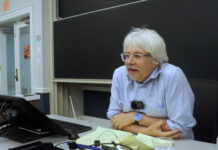The UVa Politics Department welcomed students, deans, and faculty in Monroe Hall on Thursday night to discuss the future of the country in a panel called “What Next?”
Although each of the five staff members on the panel brought different perspectives regarding President-elect Donald Trump and the nation’s future, they came to a consensus that the presidency makes the president, not the other way around. To these professors, so much of success depends on circumstance.
Wyatt Andrews, a Media Studies professor of practice who worked for CBS News, spoke first. He asked the audience where their news comes from, referenced the diminishing number of reporters, and said that it is rare to have writers speak directly to their sources of information nowadays.
“The mainstream media is overwhelmingly honest,” said Andrews. He also mentioned that Trump’s claim that the media was dishonest throughout his campaign was factually wrong.
Andrews ended his remarks by stressing that freedom of the press is vital to all other freedoms. Although he sees an opportunity for Trump to rise to the occasion, Andrews believes that the President-elect will have to discontinue holding himself above criticism and acknowledge the truthfulness of the press.
James Ceaser, a Politics professor since 1976, focused on the need for Democrats to move forward and redefine their image as the party of the people.
Ceaser noted that the party of the people missed the people: “Why didn’t we see the people? They were right there. Why didn’t the pollsters see the people? They were right there.”
The usual causes of election loss were not at play this time. Normally the losing candidate does not receive the media’s favor or spends less money campaigning than the other candidate, Ceaser explained. This year however, Hillary Clinton had both the endorsement of the media and a larger budget than her opponent and she still lost.
“Now,” Caesar said, “it is time for acceptance.”
Next to introduce himself was Sidney Milkis, a Politics professor who has published an extensive list of books. He suggested that on second look, the results of the election were not all that different from past election outcomes.
Milkis’ main concern was the deeply divided nation that the election cemented.
“Red America is now redder and Blue America is now bluer,” he said.
The sharp cultural divide between the Democrats and Republicans has led to a sort of identity crisis. “There seems to be a contest over what it means to be American,” he said. “And now, Trump will have to navigate a political war zone.”
Lynn Sanders, an associate Politics professor who contributes to various journals, went further than Milkis to say that not only will Trump inherit a troubled country, but that the “challenge before us is to try to create a resistance movement to the authoritarian threat.”
Her one provision was that the resistance cannot be a partisan movement. Instead, both parties must work together, even though they are incredibly polarized. Sanders implored the audience “to find common ground and common commitment.” After all, both parties want to preserve the nation’s system of government, they just have different methods for doing so.
Although the condition of the country seems dire and at peak polarization, Carah Ong, who works in the Miller Center’s Governing America in a Global Era (GAGE) program, said that this election may not be as unique as people think. Perhaps the country only looks so polarized “because of the choices we were given.”
“This was the year of the reticent voter,” said Ong, speaking to the rise of negative partisanship in this election cycle. “We have been here before,” she continued, “and we should look to history as our guide.”
Ong cited revived civic engagement and recognized that Federalism is still alive and instrumental to the recovery of the United States. Democrats may have to turn to grassroots organizations and build themselves up again, but this movement could lead to greater engagement of more people.
Trump, for his part, could be more pragmatic than people expect, Ong explained. He continues to meet with some of his biggest critics within the Republican party, which could signal a shift in his behavior to work for a greater good rather than his own interests.
The audience asked questions about how society will handle this shift in ideology – a plan for improving the country that differs from the measures Obama has taken in the past. In response, the panelists reiterated that for all of the country’s differences, people must remember the commonalities that bind the nation as a whole.
“For as red and blue as [our country] looks, it is actually really purple,” concluded Ong.








